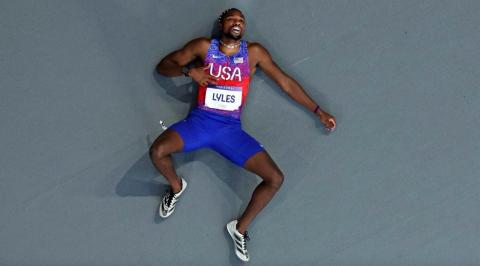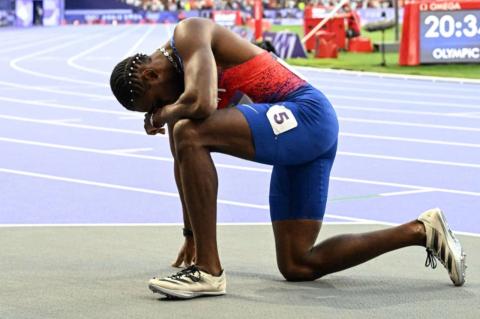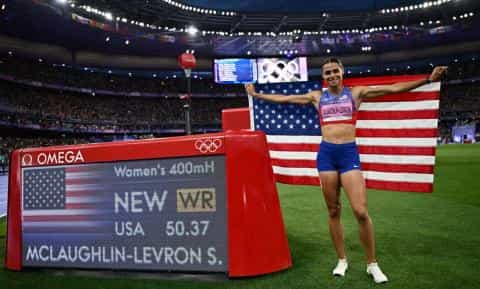

American sprinter Noah Lyles faced an unexpected and grueling challenge at the Paris 2024 Olympics, as his bid to become the first man since Usain Bolt to win both the 100m and 200m titles was derailed by a battle with COVID-19. Despite the setback, Lyles courageously secured a bronze medal in the 200 meters, a performance he described as one of his proudest achievements.
The 27-year-old had earlier claimed the 100m Olympic title in a nail-biting finish, edging out Jamaica's Kishane Thompson by five-thousandths of a second in what many called the fastest 100m race in history. However, just four days later, Lyles was visibly struggling as he lined up for the 200m final, where he was ultimately bested by Botswana's Letsile Tebogo, who took gold, and his fellow American Kenneth Bednarek, who claimed silver.

Lyles revealed after the race that he had tested positive for COVID-19 early Tuesday morning, just days after his 100m triumph. Despite his illness, Lyles chose to keep the diagnosis private, not wanting to give his competitors any advantage. He approached the final with his usual energy and enthusiasm, even as the virus took its toll on his body.
"COVID definitely affected my performance," Lyles admitted after the race. "I've had to take a lot of breaks. I was coughing through the night. I'm more proud of myself than anything, coming out here to get a bronze with COVID."
Lyles’ struggle became evident as he crossed the finish line in third place. Shortly after, he was helped into a wheelchair, visibly short of breath and fatigued. Despite his valiant effort, the effects of the virus were clear as he failed to mount the comeback for which he is so well known.
"We were trying to keep this close to the chest," Lyles explained. "The people who knew were the medical staff, my coach, my mum. We didn't want everybody going into a panic. I'm competitive. Why would you give [your rivals] an edge over you?"
Lyles had initially planned to compete in the 4x100m and 4x400m relay races, hoping to add to his medal haul. However, in a later post on social media, he announced that his Olympics were over due to his health. "I believe this will be the end of my 2024 Olympics," he wrote. "It is not the Olympics I dreamed of, but it has left me with so much joy in my heart - I hope everyone enjoyed the show."
Lyles' Olympic journey in Paris was one of resilience and determination, showcasing his ability to compete at the highest level even under the most challenging circumstances. His bronze in the 200m, alongside his gold in the 100m, cements his legacy as one of the sport's most formidable athletes, even as the dream of an Olympic sprint double was dashed.
Discover More Content





